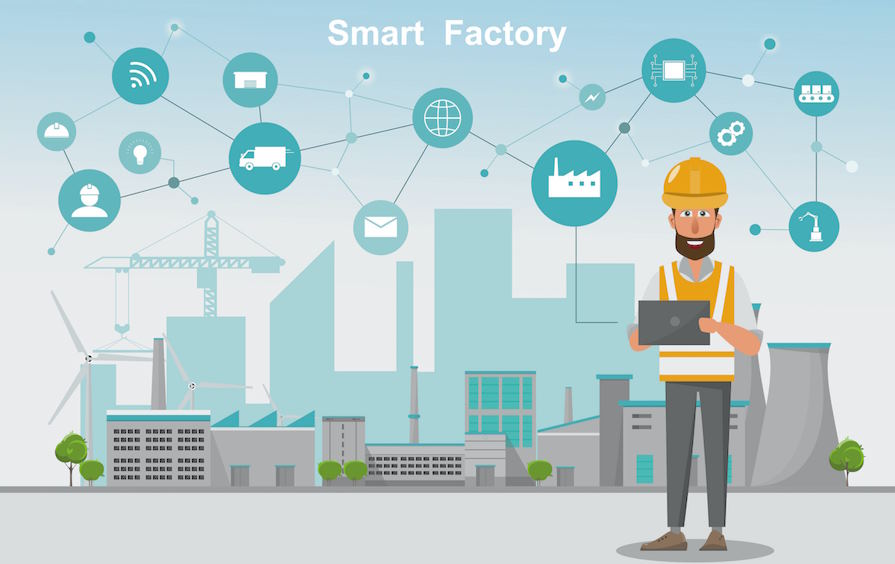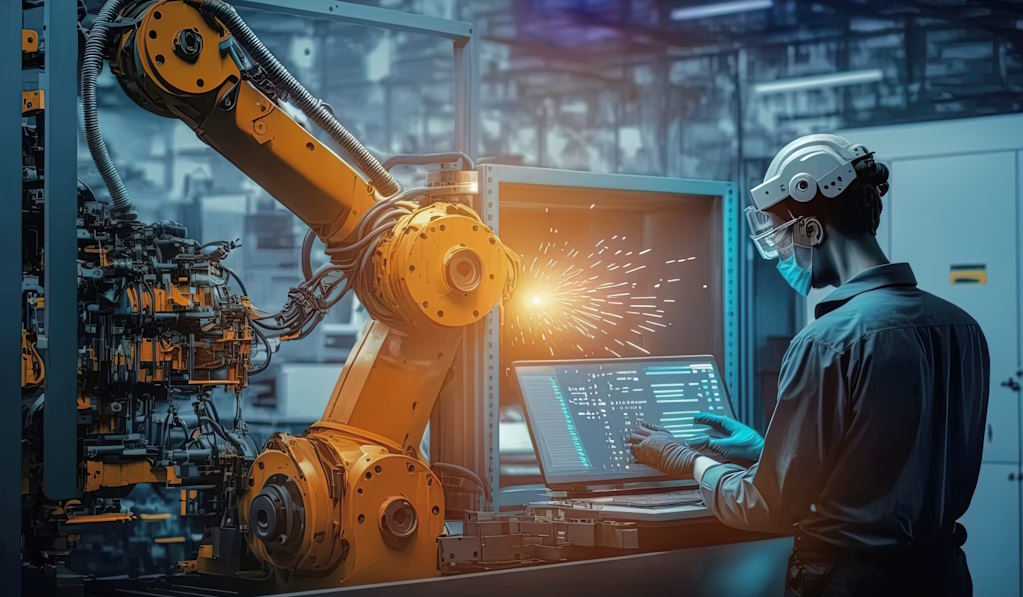Manufacture is characterized by the integration of advanced technology into production processes of modern industrial innovation. It plays a crucial role in reducing pollution, a pressing issue in the contemporary manufacturing landscape. This integration technology not only streamlines production but also significantly the role of smart manufacturing in pollution reduction.
Leveraging IoT and AI for Efficient Operations
The cornerstone of wise manufacturing is the Internet of Things (IoT) and Artificial Intelligence (AI). IoT devices in manufacturing plants collect real-time data on every aspect of the production process. The data is then analyzed by AI algorithms to optimize operations, resulting in more efficient use of resources and reduced waste.

Energy Efficiency through Advanced Technologies
Energy consumption is a significant contributor to pollution in the manufacturing sector. Sensors and AI systems can monitor and adjust energy use in real time, ensuring that machines and systems operate at peak efficiency. It not only reduces energy consumption but cuts down on the greenhouse gas emissions associated with energy production.
Reducing Waste with Precision and Predictive Maintenance
Waste reduction is another critical aspect of pollution control technology is transforming manufacturing for a greener future. Advanced technologies enable precise control over material use, drastically reducing scrap and waste. Additionally, predictive maintenance, powered by AI, can foresee when machines need servicing, thus preventing the waste generated by machine breakdowns and ensuring that resources are used optimally.

Sustainable Supply Chains
Smart manufacturing extends beyond the confines of the production floor. For example, logistics can be optimized using AI algorithms, reducing fuel consumption and emissions from transportation. This holistic approach of smart manufacturing solutions for pollution control ensures that the entire manufacturing process, from raw material sourcing to product delivery, is as environmentally friendly as possible.
Challenges and Opportunities
The transition to smart manufacturing presents challenges, including significant investment in new technologies and training workers. However, the long-term benefits, including pollution reduction, cost savings, and increased competitiveness, outweigh the initial hurdles.

